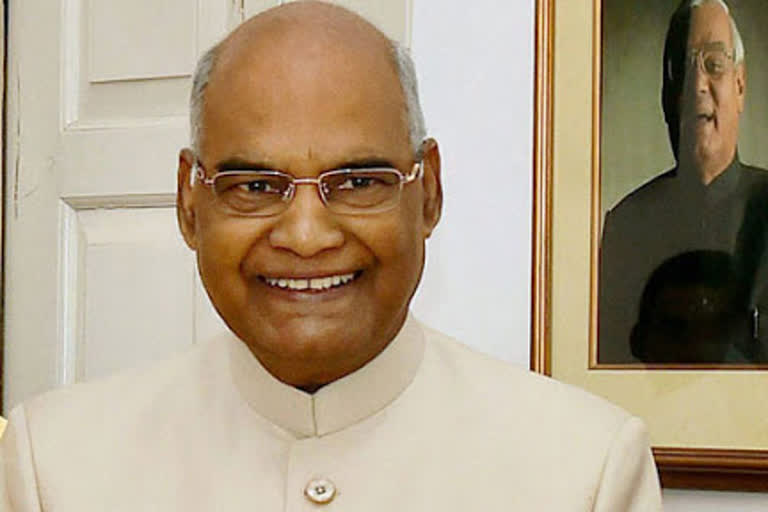New Delhi: The new National Education Policy (NEP) aims to reorient the education system towards meeting the needs of the 21st century by achieving the twin objectives of inclusion and excellence, President Ram Nath Kovind said Saturday.
Addressing the Visitors' Conference on 'Implementation of National Education Policy 2020 in Higher Education', the President said the policy sets the vision of developing an equitable and vibrant knowledge society by providing quality education to all.
"Higher education institutions have a greater responsibility for making India a global knowledge superpower. The quality standards set as a benchmark by these institutions would be followed by other institutions," the President said.
He said the fundamental principles of the new policy include inculcating creativity and critical thinking in order to encourage logical decision-making and innovation.
"The NEP also seeks to encourage critical thinking and spirit of enquiry. Effective implementation of the policy is likely to restore India's glory as a great centre of learning as during the times of Takshashila and Nalanda," he said.
Drawing inspiration from the "Bhagvad Gita" and the Krishna-Arjun dialogue, the President reiterated the concept of free communication and discussion between the teacher and the student.
Also read:PM Modi addresses conclave on school education under NEP-2020
"The National Education Policy aims to reorient the education system towards meeting the needs of the 21st century by achieving the twin objectives of inclusion and excellence. It sets the vision of developing an equitable and vibrant knowledge society by providing quality education to all," he said.
Listing the features of the new policy, Kovind said that it would also introduce the system of the academic bank of credits.
"It would digitally store the academic credits earned from various higher education institutions so that degrees can be awarded, taking into account the credits earned by students. This would allow students the freedom to take courses as per their vocational, professional or intellectual requirements in addition to giving flexibility of suitable exit and re-entry points," he said.
"The need for strict monitoring of B.Ed., vocational and distance-learning courses is also being taken care of in this policy," he added.
